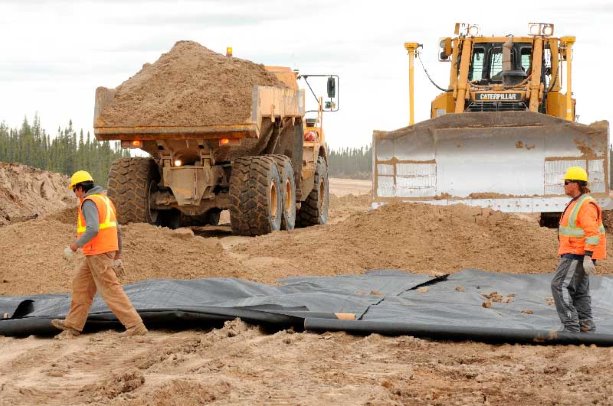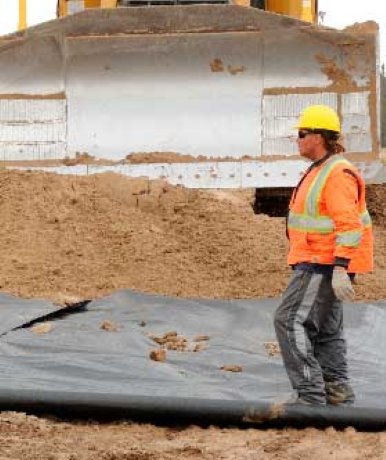WINNIPEG – The Keeyask Hydropower Limited Partnership (KHLP) and Manitoba Hydro recently announced a new control budget of $8.7 billion and revised in-service date of August 2021 for the Keeyask Generating Station, currently under construction on the Nelson River in northern Manitoba.
This represents an increase from the previously approved budget of $6.5 billion and a delay of 21 months from the previous in-service date of November 2019.
Officials called the changes a "realistic estimate" for such a large and complex project.
The Keeyask Generating Station is owned by the KHLP, a partnership between Manitoba Hydro and four First Nations: Tataskweyak Cree Nation, Fox Lake Cree Nation, York Factory First Nation and War Lake First Nation. Manitoba Hydro has been contracted by the KHLP to build and operate the 695-megawatt station on its behalf.
"The new control budget and revised in-service date developed by Manitoba Hydro has been presented to the KHLP board," said Lorne Midford, chair of the KHLP board, in a statement. "Manitoba Hydro continues to work with its Keeyask partners to evaluate the impact of the cost and schedule changes to each partner’s interests in the project."
Midford said this examination includes assessing the potential impact on project benefits, including employment and business opportunities for each partner community.
The potential for the increased cost estimate was first identified in the Manitoba Hydro-Electric Board’s (MHEB) review of capital projects completed in the fall of 2016. That analysis, conducted by the Boston Consulting Group (BCG) for the MHEB, identified costs for Keeyask were expected to rise from the 2014 control budget up to a possible $7.8 billion, along with a potential delay in completion of up to 31 months.
The revised control budget reflects a more detailed review conducted by Manitoba Hydro. The review considered the current state of the project’s progress and costs incurred to date, including the results of the first full year of structural concrete work in 2016.
The new control budget includes an additional $900 million in contingency funds, interest and escalation not included in the BCG analysis. The utility believes these allowances are prudent to help address potential cost and schedule risks still present in the project.
"Keeyask is a large and very complex project and the updated control budget is a realistic estimate based on what we know today," said Kelvin Shepherd, president and CEO of Manitoba Hydro. "However, there is always a chance of additional risks materializing that could impact the schedule and costs."
Shepherd said the MHEB reviewed the updated plan developed by Manitoba Hydro. The MHEB considered other factors, such as revised estimates for Manitoba load growth, updated export pricing and a risk analysis of the cost estimates. The MHEB concluded despite the cost escalation, completing the project makes the best sense for Manitoba Hydro, its customers and the province.
"Completing Keeyask will allow us to fulfill export contracts worth approximately $4.5 billion," Shepherd said. "This will help offset some of the costs of the project. Despite the increased cost to complete construction, stopping now is not an economically viable option as the significant costs of cancellation—together with lost revenues—more than offset any potential savings.
"It’s important to remember Manitoba is growing," Shepherd added. "Updated electric growth forecasts indicate our province is going to need a new source of generation to meet domestic load by approximately 2033."
Shepherd said Manitoba Hydro continues to focus on making further improvements to its oversight of the project. The utility has renegotiated key aspects of the general civil construction contract, including schedules and costs, to ensure it can minimize the "go-forward" costs and possible delays. Civil works include all earth moving, excavation and concrete work on the project.
Shepherd also said it’s still too early to determine the impact of the revised control budget on the corporation’s rates. Manitoba Hydro is still finalizing its long-term financial forecast as part of the utility’s next General Rate Application to the Public Utilities Board.












Recent Comments
comments for this post are closed